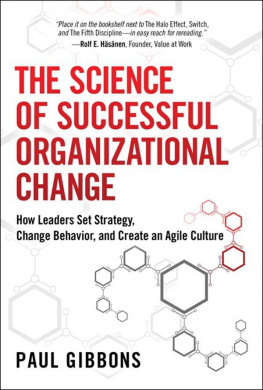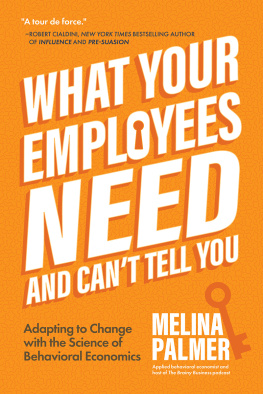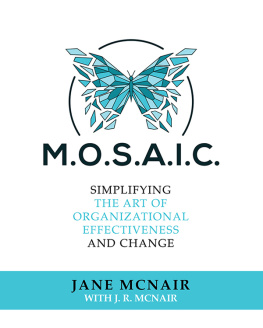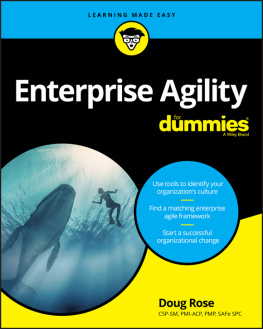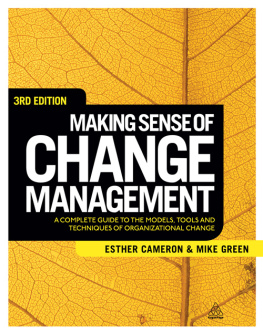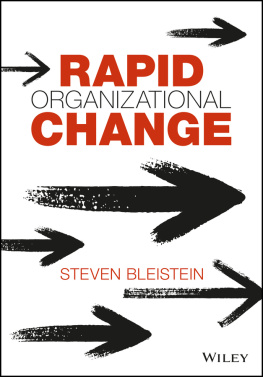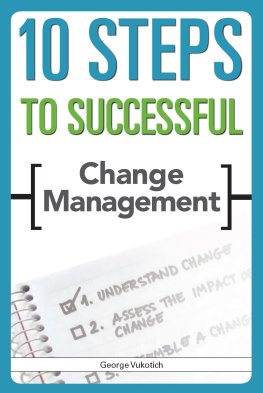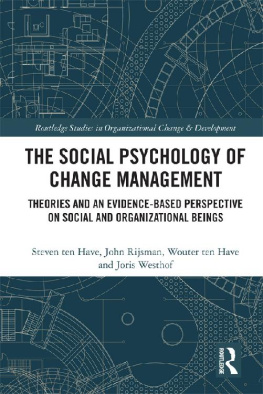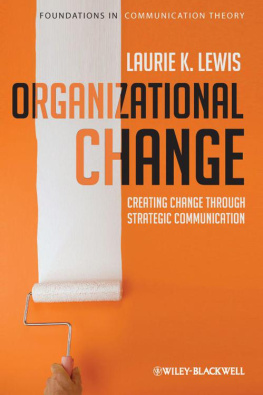Gibbons - The science of successful organizational change : how leaders set strategy, change behavior, and create an agile culture
Here you can read online Gibbons - The science of successful organizational change : how leaders set strategy, change behavior, and create an agile culture full text of the book (entire story) in english for free. Download pdf and epub, get meaning, cover and reviews about this ebook. City: U.S, year: 2015, publisher: Pearson FT Press, genre: Business. Description of the work, (preface) as well as reviews are available. Best literature library LitArk.com created for fans of good reading and offers a wide selection of genres:
Romance novel
Science fiction
Adventure
Detective
Science
History
Home and family
Prose
Art
Politics
Computer
Non-fiction
Religion
Business
Children
Humor
Choose a favorite category and find really read worthwhile books. Enjoy immersion in the world of imagination, feel the emotions of the characters or learn something new for yourself, make an fascinating discovery.
The science of successful organizational change : how leaders set strategy, change behavior, and create an agile culture: summary, description and annotation
We offer to read an annotation, description, summary or preface (depends on what the author of the book "The science of successful organizational change : how leaders set strategy, change behavior, and create an agile culture" wrote himself). If you haven't found the necessary information about the book — write in the comments, we will try to find it.
The Science of Organizational Change identifies dozens of change management myths, bad models, and unhelpful metaphors, replacing some with twenty-first century research and revealing gaps where research needs to be done. Paul Gibbons links the origins of theories about change to the history of ideas and suggests that the human sciences will provide real breakthroughs in our understanding of people in the twenty-first century. For example, change fundamentally entails risk, yet little is written for business people about how breakthroughs in the psychology of risk can help change leaders. Change fundamentally involves changing peoples minds, yet the most recent research shows that provision of facts may strengthen resistance.
Starting with a rigorous and evidence-based understanding of what makes people in organizations tick, he presents a complete framework for organizing your company around successful change. With case studies from Google, IBM, Shell, British Airways, British Petroleum, HSBC, and Morgan Stanley, Gibbons goes deeper and broader than any previous discussion of the subject.In this multi-disciplinary treatment of change leadership, you will learn:
- How a deeper understanding of flaws in human decision-making can help you make far better choices when the stakes are largest
- How new advances in neuroscience have altered best practices in influencing colleagues, negotiating with partners, engaging followers hearts, minds, and behaviors, and managing resistance
- How to bring greater meaning and mindfulness to your organization - and reap their benefits
- How new ideas from analytics, forecasting, and risk are humbling those who thought they knew the future - and how the human side of analytics, and the psychology of risk are paradoxcially more important in this technologically enabled world
- How to improve your boardroom, promoting more effective conversations about strategy, ethics, and decision-making
- What chaos and complexity theories mean in the context of your own business
- How to create resilient and agile business cultures, and anti-fragile, dynamic business structures
Change will never be easy. To systematically improve your odds, you need science, a framework built on science, and actionable lessons from leaders whove made change work. You need Paul Gibbons The Science of Organizational Change .
Gibbons: author's other books
Who wrote The science of successful organizational change : how leaders set strategy, change behavior, and create an agile culture? Find out the surname, the name of the author of the book and a list of all author's works by series.

